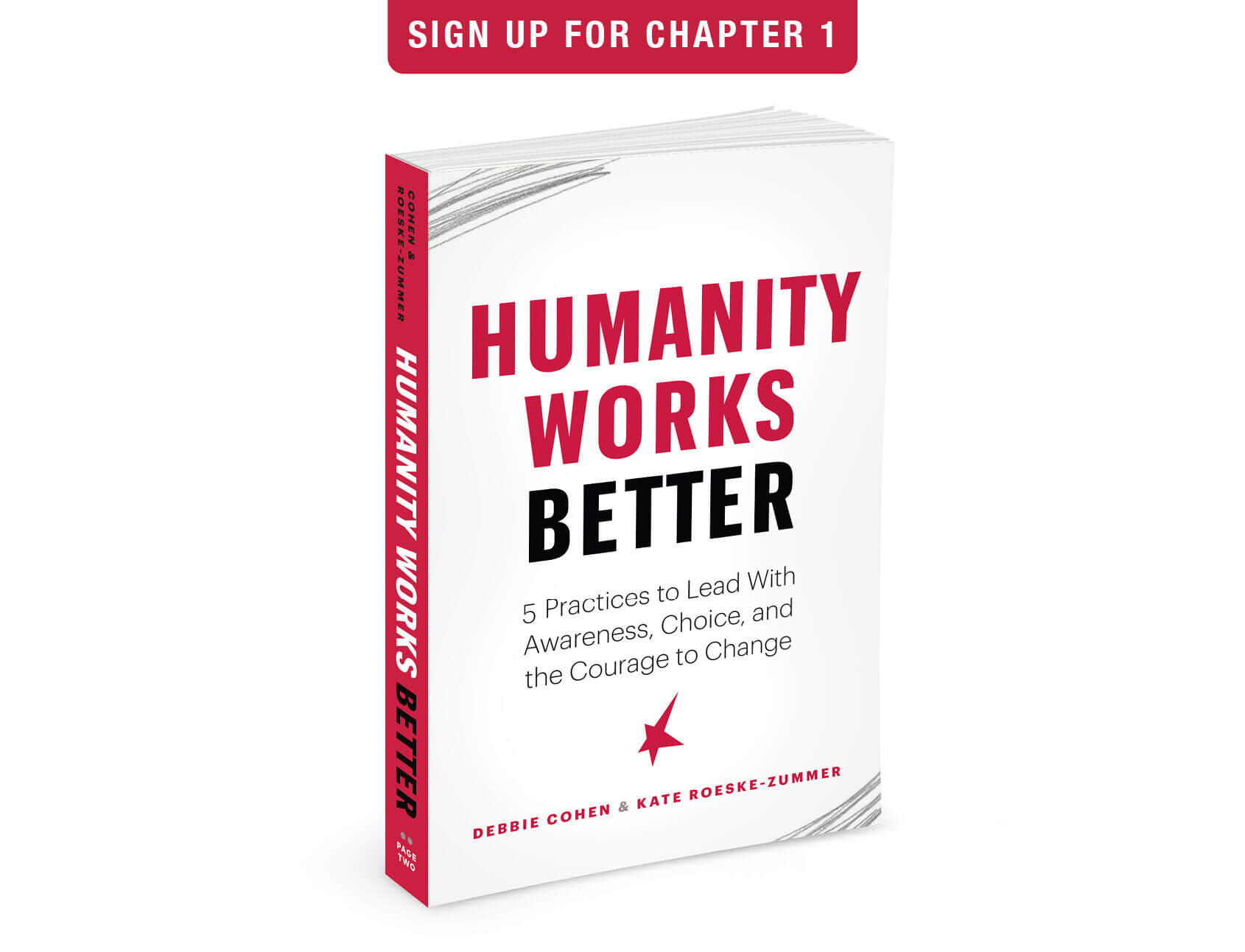Could love be in the air? It’s up to you!
In this post we offer tips on how to do hard things with heart. Companies are making hard decisions all the time and those decisions impact good people. When times are hard, some of these good people are let go and some remain behind. Some of the best learning comes from these hard times. It all starts with perspective. It is inevitable that change happens, but how you respond to it…well that’s up to you. Are you leading with heart? With humanity? The place to look is how you respond in the midst of chaos and mess.
Not long ago two members of Deb’s family, Evan and Kenz, were leaving San Francisco and relocating to Southern California. In the midst of the move chaos, Deb hears Evan ask “Kenz, is this a lovegistic or logistic moment?” Deb’s ears perked up and asked what that was all about. What they have learned is they each approach things differently. Evan can be more logistically minded – in this case, what’s it going to take to get from point A to point B in the fastest possible way. Kenz can be drawn to the emotion of the circumstance – like leaving her home in San Francisco, and needs time to take in the moment. They approach the same circumstance from different perspectives. By taking a pause to align on how the situation, or pieces of an experience, are navigated, conflict is averted. As a team, they have learned to get on the same page about which things are logistics and which are lovegistics. We think this is brilliant!
How to do the hard things of leadership but in a human way
When times are hard, it can be really easy to lean into the logistics, the thinking side of our brain. When what may be needed is leaning into the heart, the emotion of our humanity. The lovegistics. Both are needed at different times, often both are needed at the same time.
A study from the Potential Project, in partnership with Harvard Business Review, charts an emerging trend: that what’s needed now are leaders who can do the hard things of leadership but in a human way. Their research examined 5,000 companies in nearly 100 countries and found, when faced with the choice between performance and compassion, the best leaders refuse to compromise. They do BOTH.
“As a leader, how do you care for your people but still do the hard things that leadership demands? Many think this is a binary choice, but making tough decisions and being human are not mutually exclusive. In truth, they are aligned. There are two key ingredients: WISDOM and COMPASSION.”
You’ve heard us talk about this before, and given the state of the world, it feels timely to remind folks about the importance of leading with wisdom and compassion.
- Wisdom is courage to be transparent with others and to do what needs to be done, even when it is uncomfortable.
- Compassion is care and empathy for another person, combined with an intention to support and help.
When hard things need to happen, our clients, who are trained and focused on being human-centered organizations, strive to lead with wisdom AND compassion. They are not binary.
Sometimes we observe leaders trying to make hard news less hard. You think the compassionate thing to do is soften the message, make things easier for people to hear. The reality is this type of message lands in a way that is disingenuous; it ignites confusion and mistrust amongst your people.
Sometimes we observe leaders trying to make hard news a nasty pill folks just need to swallow. Maybe out of fear, maybe out of an old mental model of paternalistic leadership, messages are delivered without consideration or regard for what people need to hear vs what the leader wants to say.
As a leader, navigating the tension between what you need to say or do, and how you do it, matters a lot. Striking the right balance of wisdom and compassion can be tough. Here are a few tips:
WISDOM:
- Begin with the end in mind. Know what you are trying to create.
- Sit in your discomfort. Discomfort means something important is trying to emerge. Mine your discomfort for information and insight.
Align your message so that what you are saying is consistent with how you are being.
COMPASSION:
- Meet people where they are and help them move forward with you, this helps create trust.
- Be clear about boundaries: what is possible and what is not. This creates clarity and that creates safety.
- Healthy relationships are reciprocal. Listen to what is important to them: there is information in their silence, or in what they are saying.
- Listening at Levels 1-2-3 (more about this in our book) will tell them that you care.
Deep connection requires an attitude and a heart for serving others. Instead of thinking about your needs, think about them. Ask yourself these questions:
- What can I do for them?
- What do they need?
- What can I offer to them and this relationship?
When navigating through the tough messy moments, we encourage you to lead with wisdom AND compassion. Lead with lovegistics AND logistics.
Humanity Works Because of YOU!
Kate & Debbie

